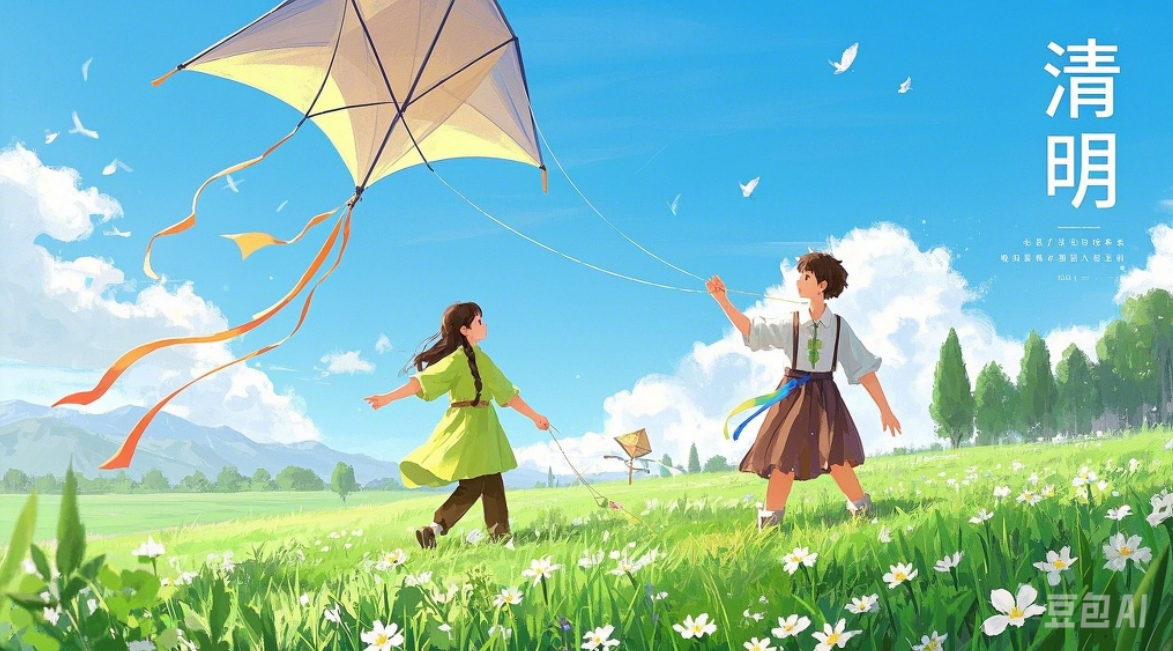24节气之清明:万物生长,清洁明净

Qingming, meaning “clear and bright”, is the fifth of China’s 24 solar terms. This year, it falls on April 4th. According to ancient records, the name comes from the idea that nature becomes fresh and lively during this time. As temperatures rise and rainfall increases, Qingming marks an important period for farming and outdoor activities.
During Qingming, people take part in two main traditions: tomb sweeping and spring outings. Tomb sweeping dates back to the Qin Dynasty, where families clean graves, offer food, and pray for blessings. This custom shows respect for ancestors and keeps family bonds (纽带) strong. Meanwhile, spring outings allow people to enjoy the warm weather, blooming flowers, and green landscapes. Popular activities include flying kites, playing football, and having picnics with loved ones.
Different regions in China have special Qingming foods. In southern areas like Zhejiang, people eat Qingtuan — soft green rice balls made with vegetable juice and filled with sweet bean paste. In northern Shaanxi, families prepare Huamo, artistic steamed buns shaped like flowers or animals, symbolizing good luck and health.
A fun Qingming tradition is planting willow branches or wearing them as accessories (装饰品). People believe this brings good fortune and drives away bad luck. Another interesting fact is that Qingming was once combined with the Cold Food Festival, a day when people ate only cold meals to honor a loyal historical person.
原创编写 版权所有 侵权必究! 每日更新 个性化阅读 英语飙升!